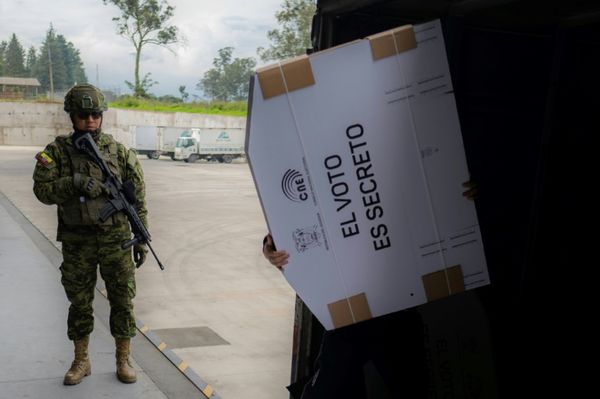
Donald Trump’s dramatic Wednesday U-turn on tariffs was a predictably unpredictable move from the U.S. president that set U.S. stocks up for their best day since 2008. But, while equities were pulled out of the firing line, the head of France’s central bank isn’t sure the rest of the world will continue to buy whatever Trump and the U.S. are selling.
On Tuesday, Trump announced a 90-day pause to tariffs leveled against several countries on April 2’s “Liberation Day,” relenting on his grand plans as equity and bond markets fell into bear market territory. China, however, was hit with increased import tariffs of 125%.
Speaking on France Inter radio, Bank of France chief and ECB policymaker Francois Villeroy de Galhau warned Trump that his maneuvers hadn’t gone unnoticed by global investors. And while equity and bond markets lick their wounds in preparation for the next bend in the roller coaster, the biggest victim in the long run could be the U.S. Dollar.
"The big element of constancy in US policy of the past decades is the attachment to the central role of the dollar. I believe that the Trump administration also has that view, but it is very incoherent in the way it practices that. What has happened in recent days and weeks plays against the confidence in the US currency," Villeroy said.
The U.S. Dollar is the world’s reserve currency, thanks to its dominance as a currency for global transactions and as reserves for central banks.
That mantle started to be questioned after Trump put pressure on Ukraine and Europe to defend themselves against the threat of Russian overreach, threatening to pull out of NATO. As the influence of China grows, some investors fear the U.S. turning its back on its allies could accelerate “de-dollarization” efforts.
Trump forces investor rethink
Villeroy’s comments are reflective of a wider investment sentiment around the U.S., for so long regarded as the protector of the Western international order and more importantly, a reliably stable location for the flow of capital.
As Fortune’s Shawn Tully reported in the wake of Trump’s tariff pause, the president appears to have been moved into action by rapidly accelerating bond yields from April 5. The 10-year Treasury bond, a key debt metric used to set things like car loans and mortgage rates, began to rise after initial signs of a dip linked to expectant interest rate cuts.
The reason behind the rise in bond yields, economists told Tully, was that tariffs appeared to shatter investors’ perception of the U.S. as a welcoming and lucrative destination for foreigners to plant their money.
Meanwhile, a slowdown in global trade would by definition reduce global demand for the Dollar through lower transactions. Trump himself has publicly stated his intention to weaken the Dollar hoping it will improve U.S. export competitiveness. Combined with lower confidence in U.S. assets, Trump’s economic agenda could very well achieve his aim.
While Villeroy denigrated the appeal of the U.S. Dollar in the wake of a fraught geopolitical climate, the ECB policymaker was keen to talk up the pros of the European alternative.
"Thank God that Europe, 25 years ago, created the Euro. We have created our own monetary autonomy, we can manage our interest rates in a way that is different from the Americans, that was not the case before," he said on France Inter.
The Euro’s introduction in 1999 set the Eurozone currency up for a battle with the greenback for global dominance. It hasn’t quite played out that way, with the Eurozone’s debt crisis causing the currency to lose track against the Dollar.
However, Trump’s isolationism push has worked in the Euro’s favor. The currency has risen in value against the Dollar since Trump’s inauguration.
In its quest to dethrone the Dollar, however, the Eurozone’s currency will face challengers. The BRICS nations have a yearslong head start in “de-dollarization,” taking more opportunities to use alternative currencies in cross-border transactions.
While the U.S.’s dominance leaves it with plenty of headroom for disruption, more weeks like the one that followed Trump’s tariff yo-yo could help the Euro compete.







